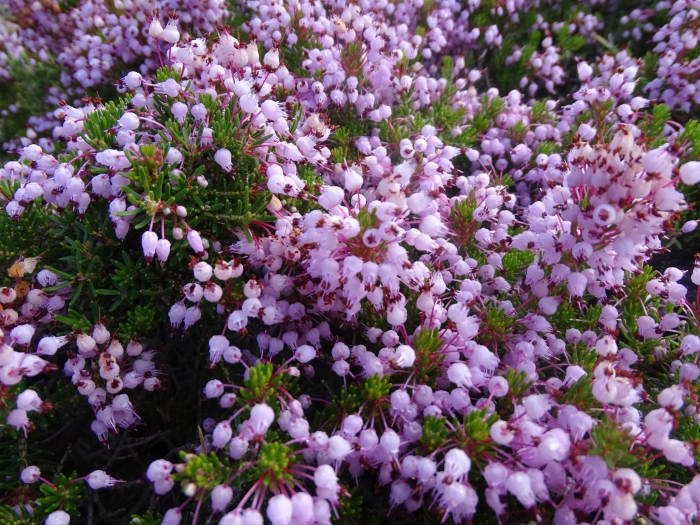Mediterranean Heath
(Erica multiflora)
Mediterranean Heath (Erica multiflora)
/
/

© Grzegorz Grzejszczak
CC BY-SA 4.0
Image By:
© Grzegorz Grzejszczak
Recorded By:
Copyright:
CC BY-SA 4.0
Copyright Notice:
Photo by: © Grzegorz Grzejszczak | License Type: CC BY-SA 4.0 | License URL: http://creativecommons.org/licenses/by-sa/4.0/ | Uploader: grzegorz_grzejszczak | Publisher: iNaturalist |






















Estimated Native Range
Summary
Erica multiflora, commonly known as Mediterranean Heath, is an evergreen shrub native to the Mediterranean Basin, specifically thriving in maquis shrubland, garrigue, and open woodlands. It is well-adapted to the coastal and mountainous regions of the Mediterranean climate, where it contributes to the local ecology by providing nectar for pollinators. Mediterranean Heath typically grows to a height of 1-1.5 meters and a similar width, with a bushy habit and numerous branches.
The plant is characterized by its dense clusters of small, bell-shaped flowers that range in color from pink to white, blooming from late summer to fall. The flowers are quite showy and attract bees and butterflies, making it a valuable addition to wildlife gardens. The foliage is needle-like, dark green, and provides year-round interest. Mediterranean Heath is drought-tolerant once established, making it suitable for xeriscaping and low-water-use gardens. It is often used in rock gardens, as ground cover, and in borders for its ornamental qualities and ease of maintenance. For best results, it should be planted in well-drained soils with a slightly acidic pH and in a position that receives full sun. While generally disease-resistant, it can be susceptible to root rot if overwatered or planted in poorly draining soils.CC BY-SA 4.0
The plant is characterized by its dense clusters of small, bell-shaped flowers that range in color from pink to white, blooming from late summer to fall. The flowers are quite showy and attract bees and butterflies, making it a valuable addition to wildlife gardens. The foliage is needle-like, dark green, and provides year-round interest. Mediterranean Heath is drought-tolerant once established, making it suitable for xeriscaping and low-water-use gardens. It is often used in rock gardens, as ground cover, and in borders for its ornamental qualities and ease of maintenance. For best results, it should be planted in well-drained soils with a slightly acidic pH and in a position that receives full sun. While generally disease-resistant, it can be susceptible to root rot if overwatered or planted in poorly draining soils.CC BY-SA 4.0
Plant Description
- Plant Type: Shrub
- Height: 1-3.25 feet
- Width: 1-2 feet
- Growth Rate: Moderate
- Flower Color: Pink
- Flowering Season: Fall, Winter
- Leaf Retention: Evergreen
Growth Requirements
- Sun: Full Sun, Part Shade
- Water: Medium
- Drainage: Medium, Fast
Common Uses
Bee Garden, Border Plant, Butterfly Garden, Groundcover, Low Maintenance, Potted Plant, Showy Flowers
Natural Habitat
Maquis shrubland, garrigue, and open woodlands in the Mediterranean Basin
Other Names
Common Names: Many-flowered Heath
Scientific Names: , Erica multiflora, Erica bianorii, Ericodes multiflorum,
GBIF Accepted Name: